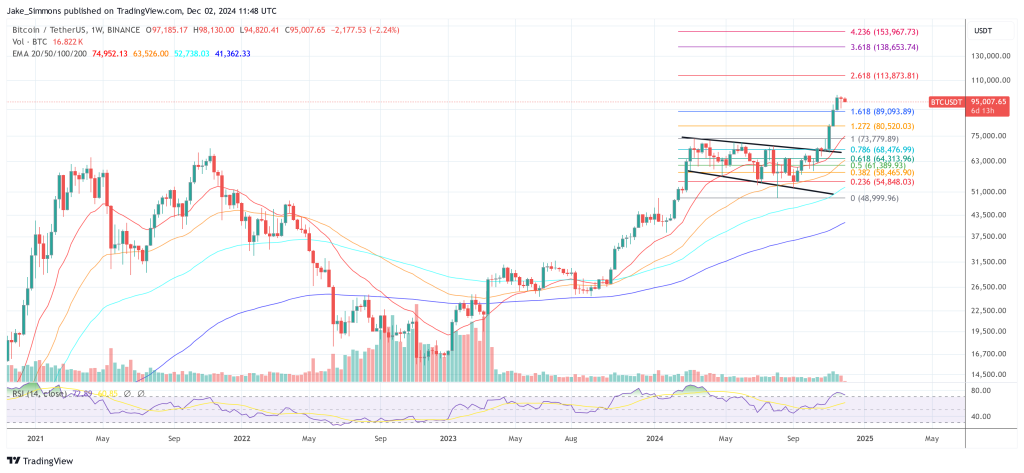
In a post on X, David Marcus, co-founder of Mark Zuckerberg’s crypto initiative Diem and current CEO of Lightspark, revealed never-shared details about the demise of the project. The revelations unveil that Treasury Secretary Janet Yellen in particular is responsible for the early termination of Diem (prior Libra).
How Meta’s Crypto Project Was Killed
Marcus began by contextualizing the inception of Diem, originally launched as Libra in June 2019 alongside 28 partner companies. “Libra (then Diem) was an advanced, high-performance, payments-centric blockchain paired with a stablecoin that we built with my team at Meta. It would’ve solved global payments at scale,” he stated. The crypto project aimed to streamline international transactions through a blockchain infrastructure, addressing the inefficiencies of traditional financial systems.
Prior to its public announcement, Marcus and his team engaged in extensive consultations with regulators both in Washington DC and internationally. “We spent months briefing key regulators in DC and abroad,” he noted.
However, the crypto project by Meta quickly encountered formidable regulatory scrutiny. Just two weeks post-announcement, Marcus was summoned to testify before the Senate Banking Committee and the House Financial Services Committee. “I was called to testify in front of both the Senate Banking Committee and the House Financial Services Committee, which was the starting point of two years of nonstop work and changes to appease lawmakers and regulators,” Marcus recounted.
This period was marked by relentless efforts to address concerns related to financial crime, money laundering, consumer protection, reserve management, and other regulatory requirements. By spring 2021, Marcus asserted that the crypto project had successfully navigated the regulatory landscape.
“We had addressed every last possible regulatory concern across financial crime, money laundering, consumer protection, reserve management, buffers, and so much more, and we were ready to launch,” he explained. The project had even secured tentative support for a limited pilot rollout from certain members of the Federal Reserve’s Board of Governors.
The turning point, according to Marcus, came during a pivotal meeting between Federal Reserve Chair Jay Powell and Treasury Secretary Janet Yellen. “At last, Chair Jay Powell was ready to let us move forward in a limited way. The story, as I heard it, is that Jay Powell was told by Treasury Secretary Janet Yellen at one of their biweekly meetings that allowing this project to move forward was ‘political suicide,’ and she would not have his back if he let it happen,” Marcus revealed. Although he was not present during this conversation, Marcus emphasized the gravity of its impact, describing it as the moment Diem was effectively terminated.
Subsequent actions by the Federal Reserve solidified the project’s downfall. “Shortly thereafter, the Fed organized calls with all the participating banks, and the Fed’s general counsel read a prepared statement to each of them, saying: ‘We can’t stop you from moving forward and launching, but we are not comfortable with you doing so.’ And just like that, it was over,” he detailed.
Marcus stressed that the termination of Diem was not rooted in legal or regulatory deficiencies but was a “100% a political kill—one that was executed through intimidation of captive banking institutions.” He expressed disappointment in the political dynamics that overshadowed the project’s potential.
“It was the hardest part of this story for me personally. Not that we had failed, but that America, this country I immigrated to and became a proud citizen of because of its rule of law and value system, behaved in such a way for political reasons. It was a very tough pill to swallow,” Marcus confessed.
Despite the setback, Marcus highlighted the valuable lessons learned from the crypto venture. The extensive concessions made during the project’s development led to significant compromises in its original design. “By the end of the project, we had made so many concessions to get a thumbs-up that the whole design of the network became a Frankenstein of our initial ambitions,” he observed.
Moreover, Marcus underscored the importance of building decentralized and resilient crypto networks, advocating for Bitcoin as the foundational asset for future endeavors. “We learned the biggest lesson of all, which is that if you’re trying to build an open money grid for the world—eventually moving trillions of dollars a day, designed to be here 100 years from now—you have to build it on the most neutral, decentralized, unassailable network and asset, which, hands down, is Bitcoin.”
Looking forward, Marcus expressed optimism about the initiatives underway at Lightspark, a company he leads that focuses on developing infrastructure for the Bitcoin ecosystem. “And now this is what many of us who went through this scarring journey are building together at Lightspark. And this time, we won’t stop until we get it done!” he affirmed.
At press time, BTC traded at $95,007.



















